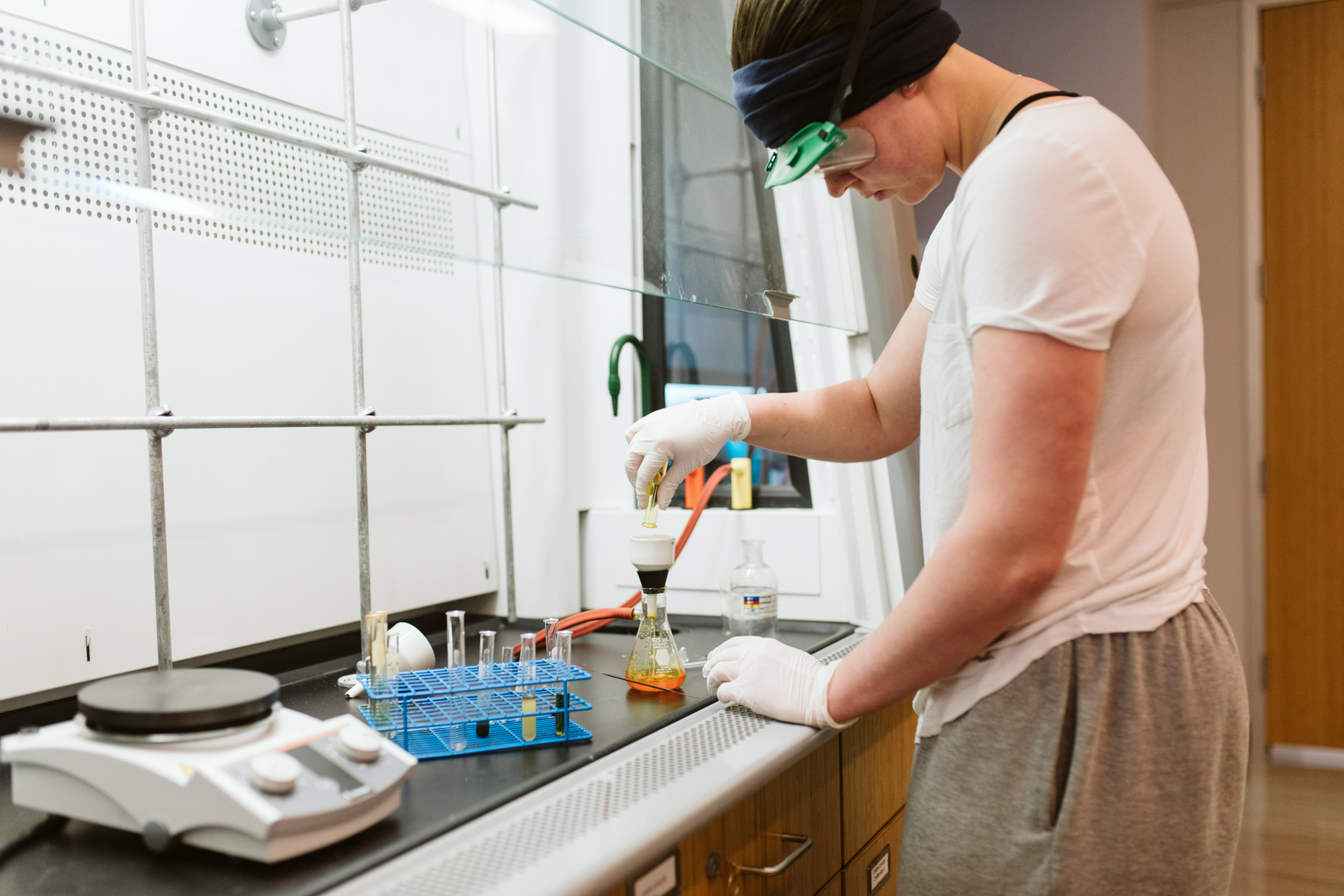Modern, First-Class Chemistry Laboratories
Laboratory Philosophy
The chemistry laboratory is where students experience the dynamic field of chemistry firsthand. Modern technology has transformed the chemistry lab and allows students at all levels to explore the molecular world in ways once accessible only to premier research scientists. North Park’s chemistry lab courses encourage inquiry-based critical thinking rather than rote direction-following. In addition, the department continues to improve experiments so they align with the principles of green chemistry—reducing and preventing chemical waste, using safe, less toxic chemicals, increasing energy efficiency, and minimizing the potential for accidents in the lab. All of this boils down to creating experiments that are environmentally friendly and inherently safer for all.
Modern instrumentation is also an essential component of chemistry and the lab experience, allowing chemists to analyze and probe the properties of atoms and molecules. Starting with the LabQuest system, allowing introductory chemistry students to gather chemical reaction data in real time, our chemistry laboratory classes give students at all levels hands-on experience with state-of-the-art equipment and the opportunity to engage in complex experiments. The Johnson Center, home of the Chemistry Department, boasts some of the newest, safest, and most energy efficient () labs in the Chicago area.
A Chemistry Department’s Epic Transformation
“Caliper” magazine explores the Nancy and G. Timothy Johnson Center’s use of LabQuest 2 and the Connected Science System in its laboratories.
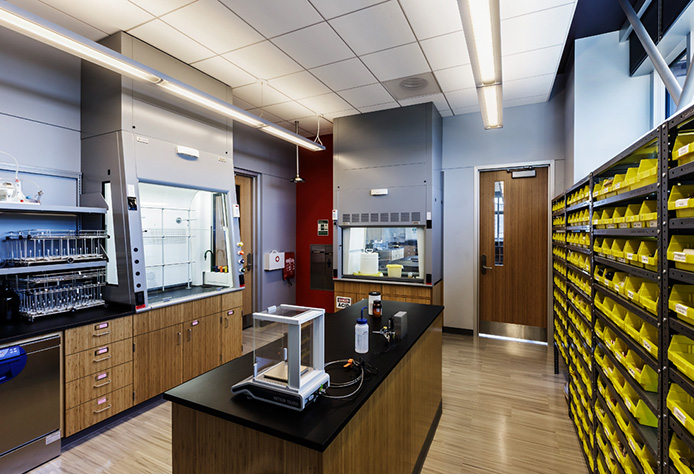
Chemistry Prep Laboratory
A dedicated chemistry preparation laboratory ensures safety and proper research protocol for assigned and independent research work.
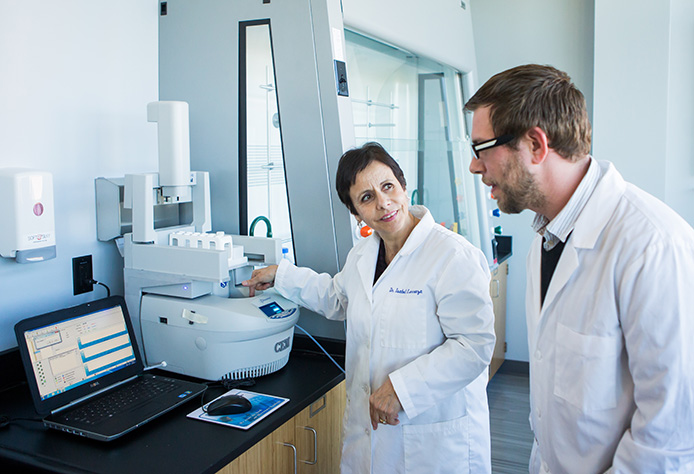
Microwave Synthesis Unit
Chemistry students have access to two multi-mode microwave synthesis ovens for high-throughput organic reaction synthesis in their lab work.
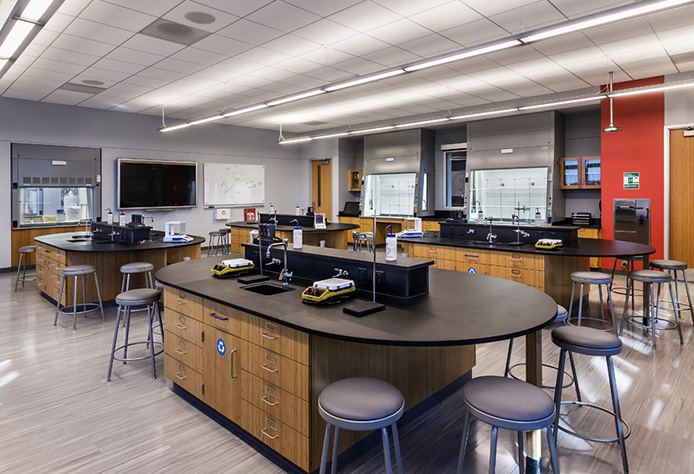
General Chemistry Laboratory
State-of-the-art teaching and learning technology, including the LabQuest 2 system, aids all student learning in introductory through advanced classes.
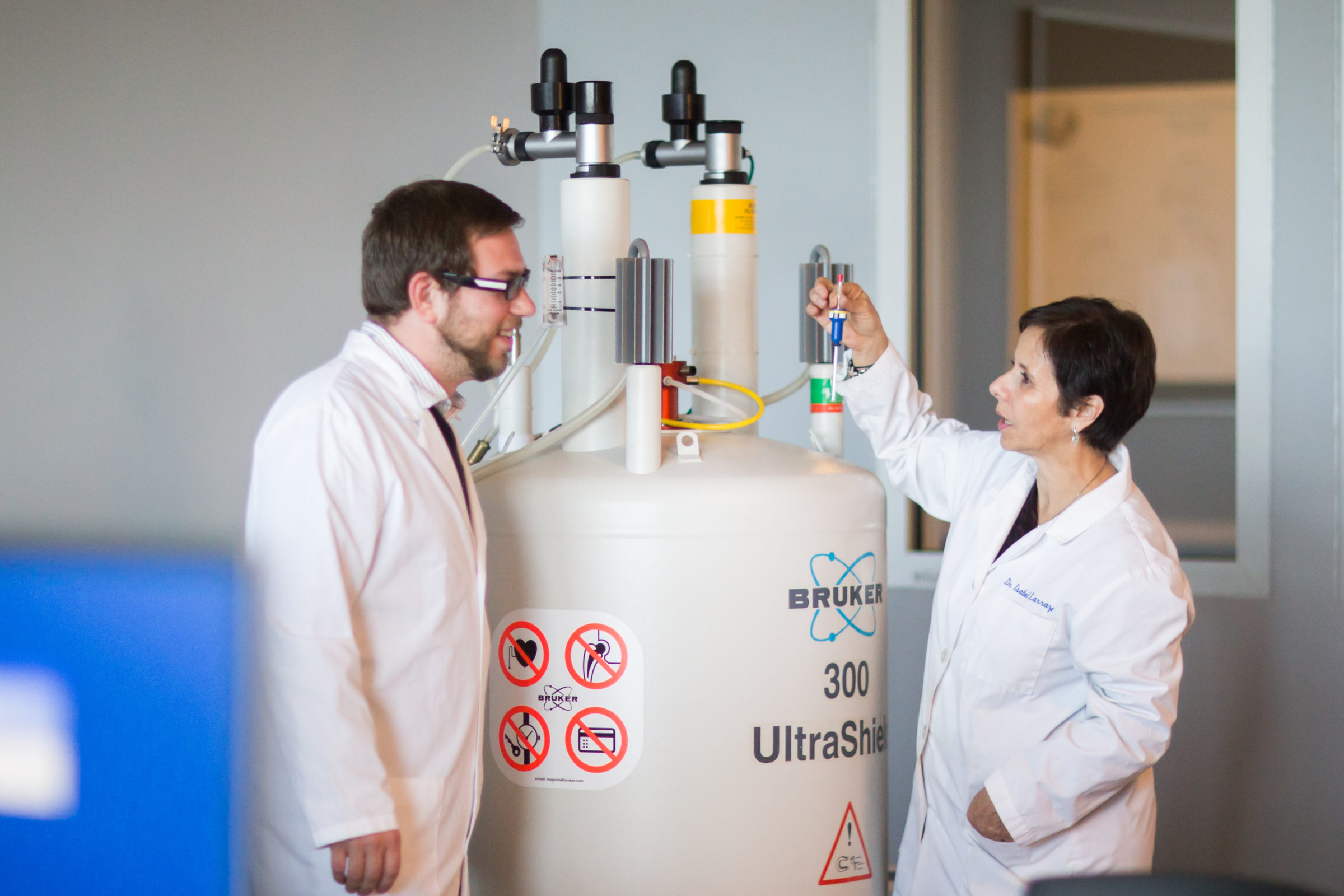
Bruker Fourier 300 MHz Nuclear Magnetic Resonance
Dr. Isabel Larraza is just one of the dedicated faculty members who teach and facilitate student research using state-of-the-art instrumentation.
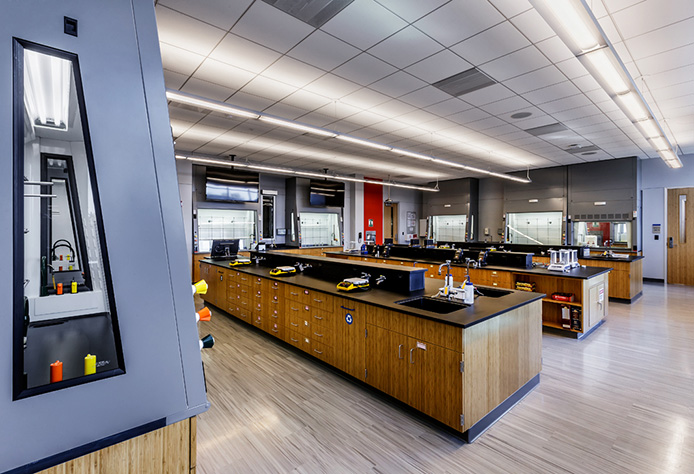
Organic Chemistry Laboratory
Specialized equipment facilitates organic chemistry lessons and research in this new lab space in the Johnson Center for Science and Community Life.
Analytical Instrumentation
Chemistry students use modern instrumentation in the context of the state-of-the-art laboratories in the Johnson Center. Our instrumentation laboratory is fully equipped for a wide variety of atomic and molecular analysis:
- Shimadzu Gas Chromatograph Mass Spectrometer (GCMS, model QP2010) for chemical separation and molecule detection
- Bruker Fourier 300 MHz Nuclear Magnetic Resonance (NMR) for molecular structure elucidation of hydrocarbon compounds
- Bitotage Flash chromatography system with UV detection for solution separation and analysis
- Perkin Elmer Spectrum 100 FTIR with Diamond ATR for molecular functional group analysis
- Two Ocean Optics CCD-array UV-VIS spectrometers with fiber optic inputs electronic absorption and emission spectroscopy
- Agiltron CCD-array Raman Spectrometer for molecular vibrational analysis
- Bruker Total Reflection X-ray Fluorescence (TXRF) spectrometer for elemental analysis in liquids and solids
- Parr semi-micro combustion (bomb) and solution calorimeter for reaction energetics determinations
- Continuum Nd:YAG laser for atomic and molecular spectroscopy
- Two multi-mode microwave synthesis ovens for high-throughput organic reaction synthesis
- High-end computational Gaussian software
Integrated Technology
North Park has specifically designed our labs to take advantage of the Vernier LabQuest 2 system. Laboratories for general, organic, and advanced chemistry courses are equipped with LabQuest 2 and a variety of probes and sensors, including mini gas chormatographs and a polarimeter. Each lab features an interactive Sharp HDTV that allows a student or instructor to control LabQuest Viewer directly from the screen. Wireless printing has also been added to these laboratories, allowing students to print directly from their LabQuest 2.
Chemistry students also have access to a student resource room with Apple iPad Air tablets to use in analyzing data and performing molecular modeling, visualization, and computation.


